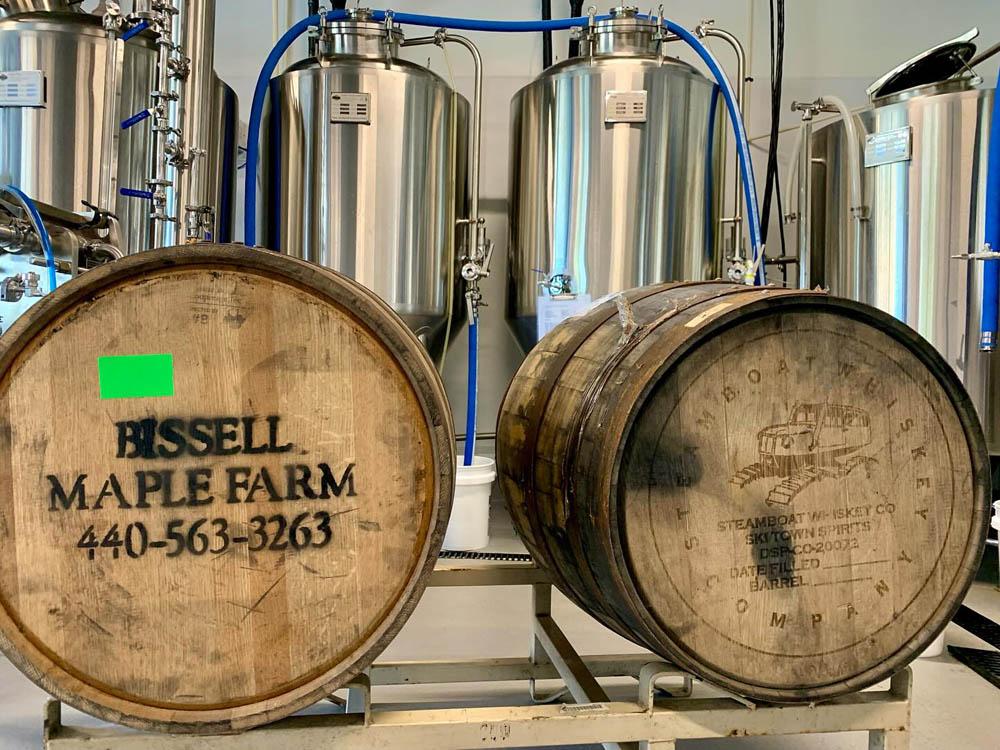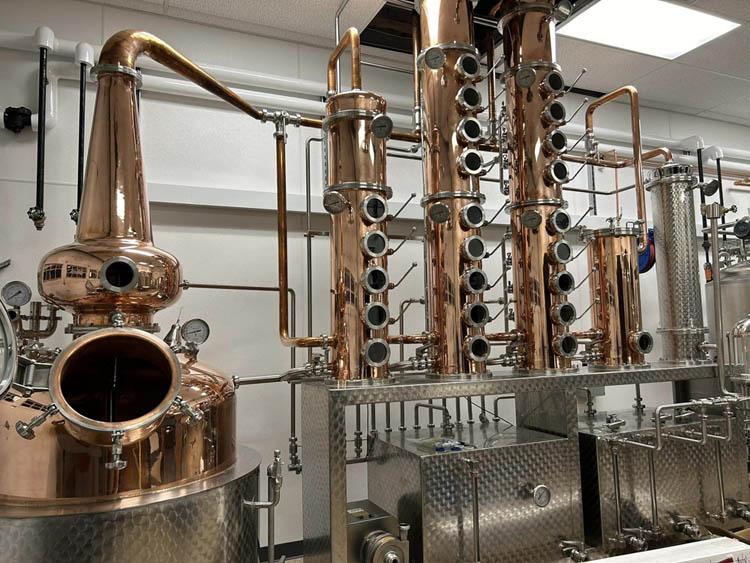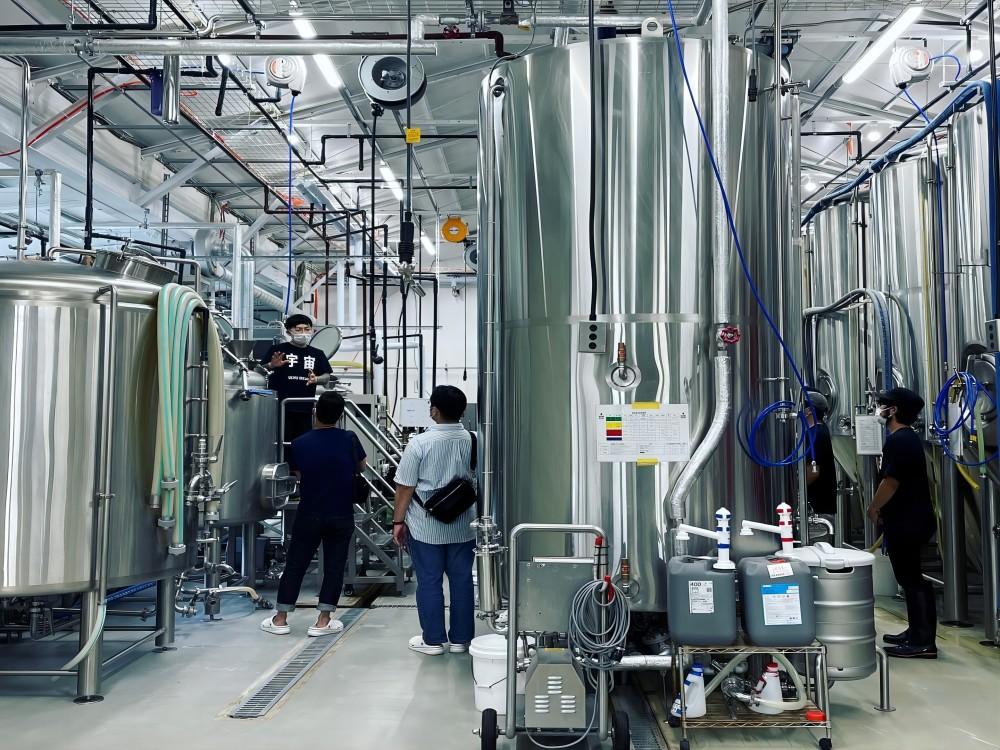15000L West Africa Burukutu/Pito Beer Brewing Machine
- Sep 11, 2025
- 153
- tiantai
I. Brief Introduction of West Africa Burukutu/Pito Beer Brewing Machine
Burukutu and Pito are traditional opaque beers widely enjoyed across West Africa, particularly in countries like Nigeria and Ghana. These beers are typically brewed from locally sourced grains such as maize, sorghum, or millet, resulting in a naturally cloudy appearance and a slightly tangy, refreshing taste. Traditionally brewed in small batches, these beverages are an integral part of local culture and social gatherings.
To support the growing demand for Burukutu and Pito, we offer complete turnkey brewing machine designed for such opaque beer. Our beer brewing machine includes maize cookers, fermentation tanks, maturation tanks, and bottling lines, all tailored to produce authentic West African beers efficiently while maintaining consistent quality. Whether you are looking for a small-scale artisanal setup or a medium-scale commercial brewery, our brewing machine can be customized to meet your production needs.
Experience the perfect blend of tradition and modern technology with our Burukutu and Pito brewing solutions.
.jpg)
II.Brewing Process of Burukutu/Pito Beer
1.) Raw Material Preparation
Sorghum or maize or millet is cleaned and milled into grist or meal.
Some brewers may mix malted grains to aid enzymatic conversion.
2.) Mashing
The milled grains are mixed with water in a mash tun.
The mixture is heated gradually to convert starches into fermentable sugars.
Typical mashing temperature: 60–70°C.
3.) Lautering / Wort Separation
The mash is separated to extract the sweet liquid called wort.
Solid residues (spent grains) are removed, often used as animal feed.
4.) Boiling (Optional)
In some Chibuku brewing methods, the wort is lightly boiled to sterilize and concentrate sugars.
Unlike conventional beer, Burukutu/Pito may skip long boiling to retain certain flavors.
5.) Cooling
The wort is cooled to fermentation temperature (around 25–30°C).
6.) Fermentation
The cooled wort is transferred to fermentation tanks.
Local yeast cultures or commercially available strains are added.
Primary fermentation lasts 2–5 days, producing alcohol and carbon dioxide.
7.) Maturation (Optional)
Beer may be transferred to brite tanks for a short maturation, allowing flavors to stabilize.
Burukutu/Pito is traditionally consumed fresh, so maturation time is short.
8.) Filtration / Clarification (Optional)
Burukutu/Pito beer is typically unfiltered, giving it a cloudy appearance.
Some modern production may include coarse filtration to remove large solids.
9.) Packaging
The beer is filled into plastic kegs or bottles.
Carbonation is adjusted (if necessary) to reach the desired pressure.
Ready for distribution and consumption.
III. Configuration for 15000L West Africa Burukutu/Pito Beer Brewing Machine
Our turnkey Burukutu/Pito beer production line includes all the essential equipment required for the complete production process:
1.) Grain Handling & Preparation
Grain Cleaner – Removes impurities from sorghum or maize.
Grain Mill / Crusher – Crushes grains into grist or meal for mashing.
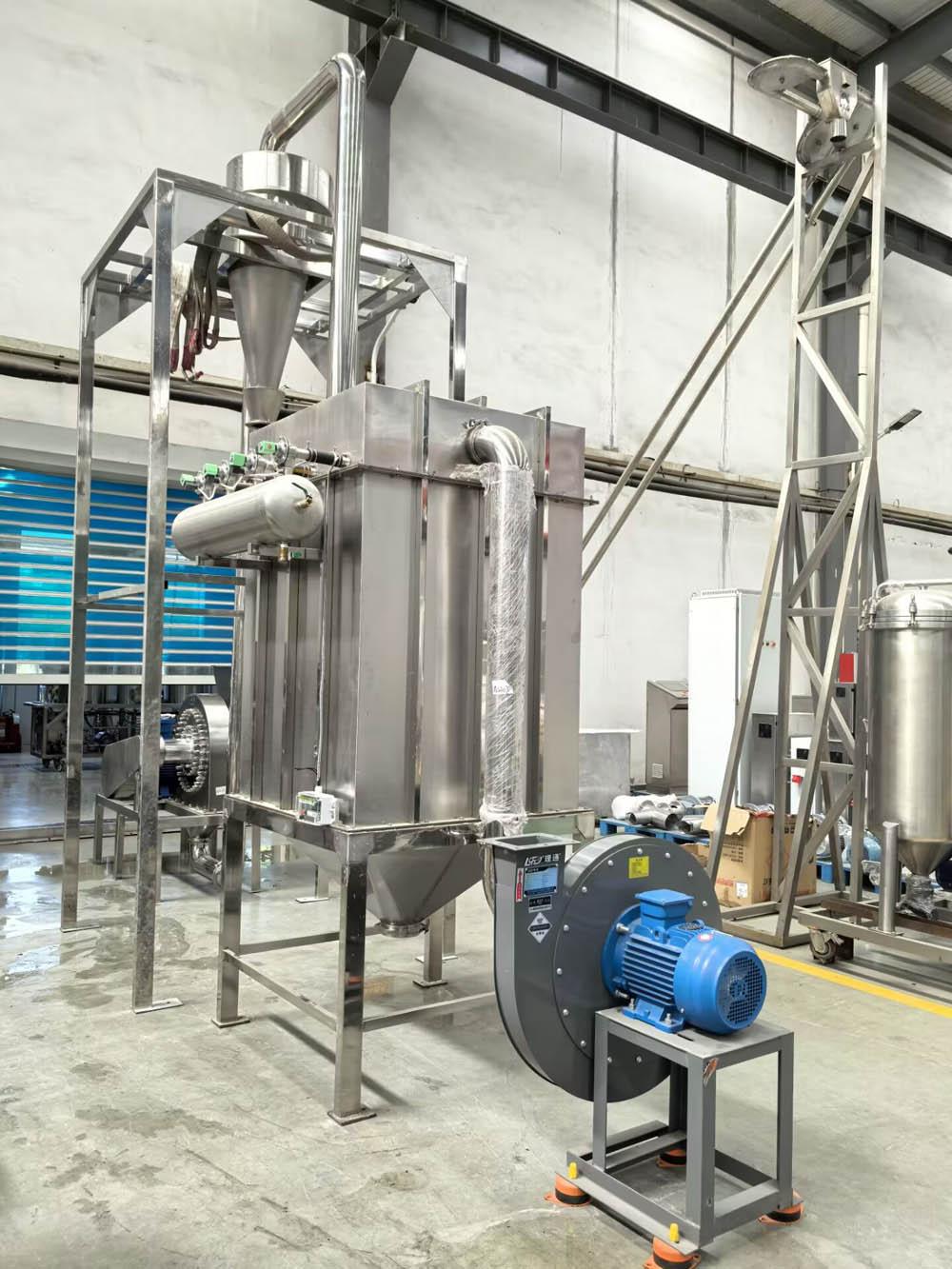
2.) Mashing & Wort Production
15000L Mash Tun – Mixes milled grains with water and heats to convert starches to sugars.
15000L Lauter Tun / Wort Separator – Separates liquid wort from spent grains.
15000L Boiling Kettle (Optional) – Lightly boils wort for sterilization and concentration.
.jpg)
3.) Cooling
60m2 Wort Cooler / Heat Exchanger – Brings wort to fermentation temperature (25–30°C).
4.) Fermentation
10-20 sets 15000L/30000L/45000L/60000L Fermentation Tanks – Stainless steel or food-grade tanks for primary fermentation.
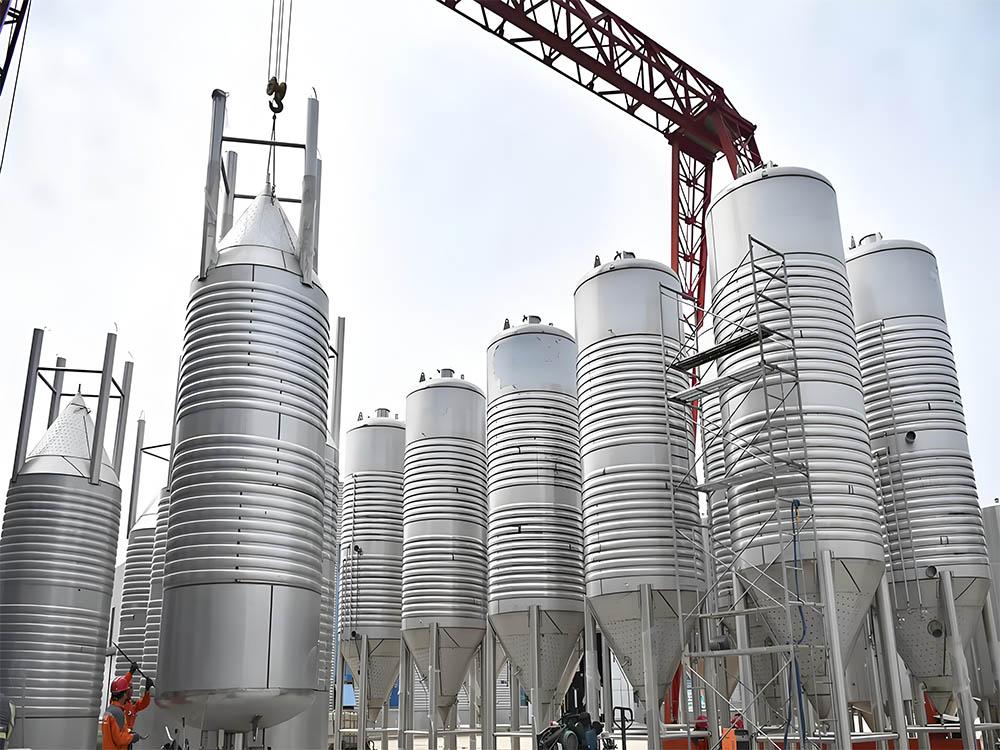
5.) Yeast Pitching System – Adds yeast to initiate fermentation.
6.) Maturation / Brite Tanks (Optional)
2-5 sets 30000L Brite Tank – Short-term storage and clarification before packaging.
7.) Filtration / Clarification (Optional)
Coarse Filter / Screen – Removes large solids if needed (traditional Chibuku is usually unfiltered).
8.) Packaging & Carbonation
Keg Filling Machine – Fills plastic kegs for distribution.
Bottle Filling Line – Optional for bottled Chibuku.
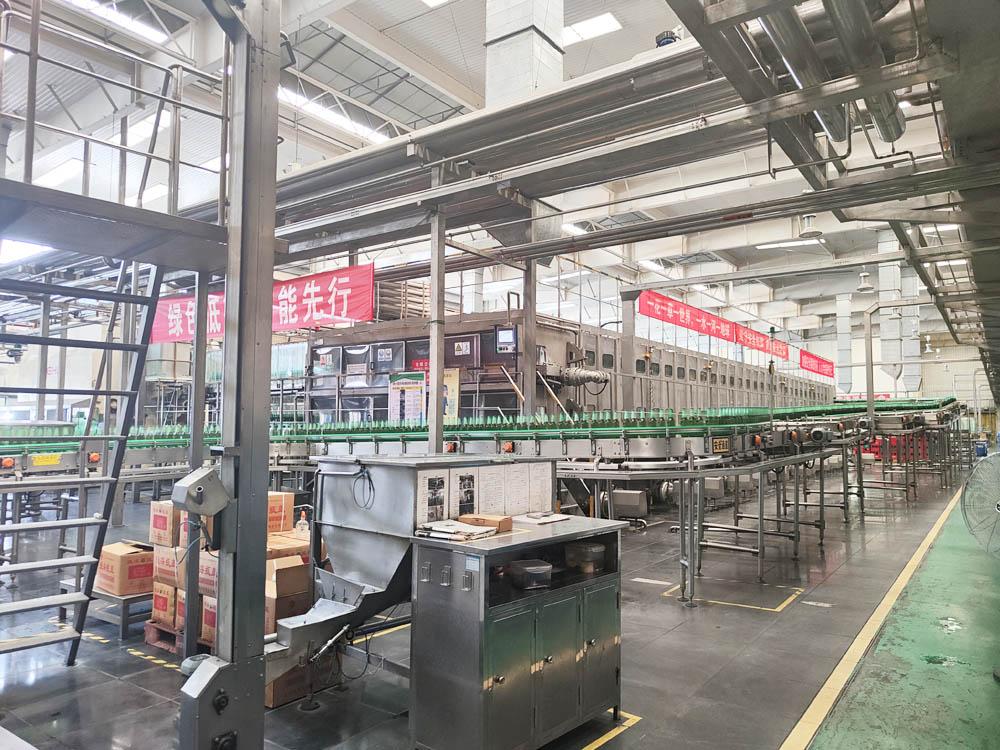
9.) CO₂ / Pressurization System – Adjusts carbonation if required.
10.) Cleaning & Sanitation
CIP (Clean-in-Place) System – Cleans tanks, pipelines, and filling lines efficiently.
IV. Burukutu/Pito Beer Features & Advantages
* Traditional and Authentic Flavor – Brewed from locally sourced grains such as maize, sorghum, or millet, offering a naturally tangy and refreshing taste unique to West African culture.
* Naturally Cloudy Appearance – The opaque nature of the beer preserves nutrients and provides a distinctive visual appeal.
* Nutritional Value – Rich in carbohydrates, proteins, and some vitamins from the grains, making it more nutritious than conventional filtered beers.
* Cultural Significance – A staple in social gatherings, festivals, and traditional ceremonies across West Africa.
* Adaptable Brewing Process – Can be brewed on small artisanal scales or scaled up for commercial production with modern brewing systems.
* High Consumer Demand – Increasing popularity both locally and among the African diaspora, offering strong market potential。
V. Market & Application Scenarios
* Local Bars and Taverns – Served fresh in traditional or modern establishments, popular among locals and tourists alike.
* Festivals and Cultural Events – A key beverage for weddings, harvest festivals, and other traditional ceremonies.
* Restaurants and Hotels – Offers a unique menu item for establishments seeking to provide authentic West African experiences.
* Commercial Production and Retail – Bottled or packaged opaque beer can be sold in supermarkets, liquor stores, and for export to the African diaspora.
* Community and Social Gatherings – Commonly brewed and shared in homes or communities, promoting social bonding.
If you are interested in starting your Burukutu/Pito Beer brewing or upgrading your existing brewery, contact us today for a personalized consultation and quotation. Let us help you bring authentic African brewing to life with modern, reliable Burukutu/Pito beer brewing machine.
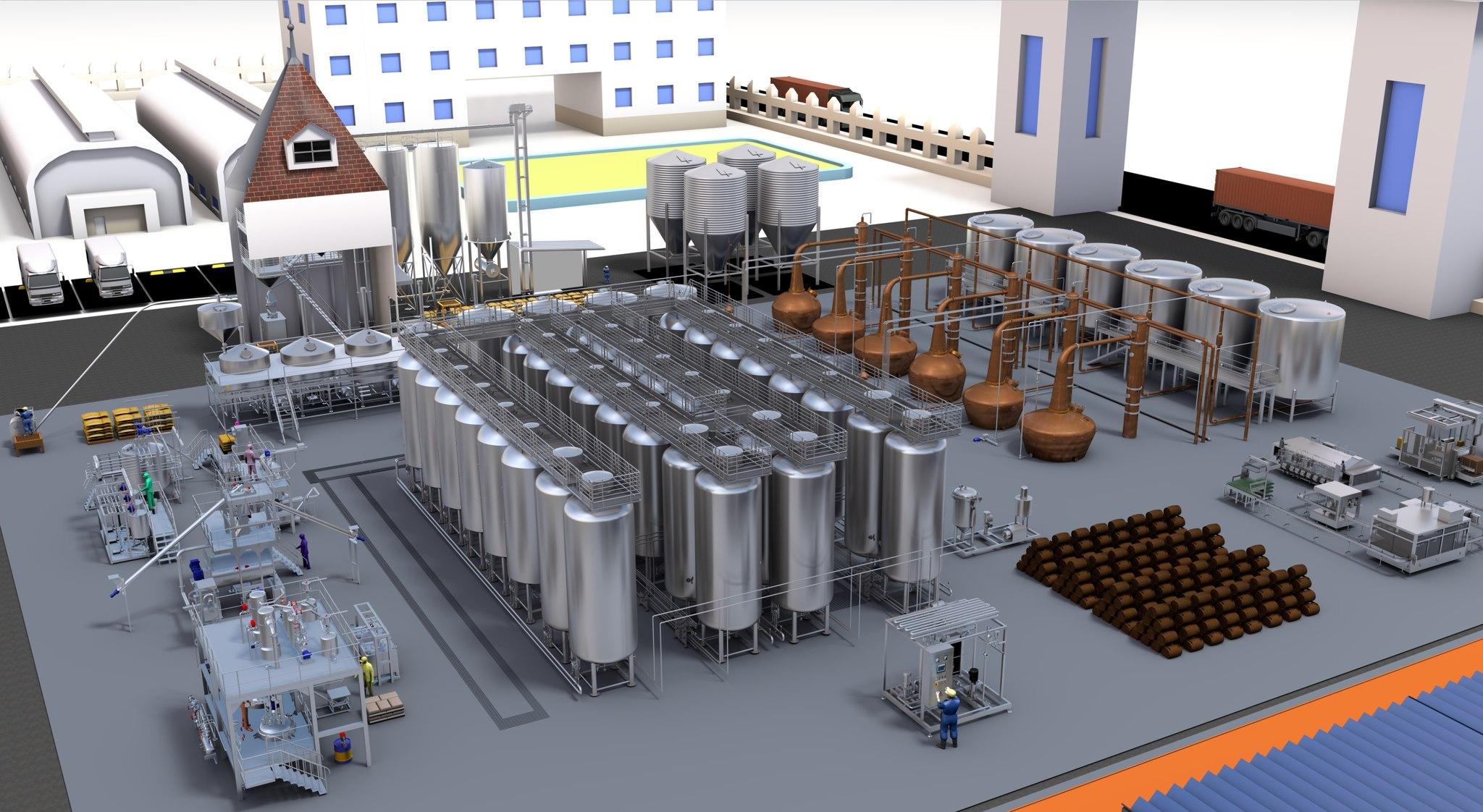
Burukutu and Pito are traditional opaque beers widely enjoyed across West Africa, particularly in countries like Nigeria and Ghana. These beers are typically brewed from locally sourced grains such as maize, sorghum, or millet, resulting in a naturally cloudy appearance and a slightly tangy, refreshing taste. Traditionally brewed in small batches, these beverages are an integral part of local culture and social gatherings.
To support the growing demand for Burukutu and Pito, we offer complete turnkey brewing machine designed for such opaque beer. Our beer brewing machine includes maize cookers, fermentation tanks, maturation tanks, and bottling lines, all tailored to produce authentic West African beers efficiently while maintaining consistent quality. Whether you are looking for a small-scale artisanal setup or a medium-scale commercial brewery, our brewing machine can be customized to meet your production needs.
Experience the perfect blend of tradition and modern technology with our Burukutu and Pito brewing solutions.
.jpg)
II.Brewing Process of Burukutu/Pito Beer
1.) Raw Material Preparation
Sorghum or maize or millet is cleaned and milled into grist or meal.
Some brewers may mix malted grains to aid enzymatic conversion.
2.) Mashing
The milled grains are mixed with water in a mash tun.
The mixture is heated gradually to convert starches into fermentable sugars.
Typical mashing temperature: 60–70°C.
3.) Lautering / Wort Separation
The mash is separated to extract the sweet liquid called wort.
Solid residues (spent grains) are removed, often used as animal feed.
4.) Boiling (Optional)
In some Chibuku brewing methods, the wort is lightly boiled to sterilize and concentrate sugars.
Unlike conventional beer, Burukutu/Pito may skip long boiling to retain certain flavors.
5.) Cooling
The wort is cooled to fermentation temperature (around 25–30°C).
6.) Fermentation
The cooled wort is transferred to fermentation tanks.
Local yeast cultures or commercially available strains are added.
Primary fermentation lasts 2–5 days, producing alcohol and carbon dioxide.
7.) Maturation (Optional)
Beer may be transferred to brite tanks for a short maturation, allowing flavors to stabilize.
Burukutu/Pito is traditionally consumed fresh, so maturation time is short.
8.) Filtration / Clarification (Optional)
Burukutu/Pito beer is typically unfiltered, giving it a cloudy appearance.
Some modern production may include coarse filtration to remove large solids.
9.) Packaging
The beer is filled into plastic kegs or bottles.
Carbonation is adjusted (if necessary) to reach the desired pressure.
Ready for distribution and consumption.
III. Configuration for 15000L West Africa Burukutu/Pito Beer Brewing Machine
Our turnkey Burukutu/Pito beer production line includes all the essential equipment required for the complete production process:
1.) Grain Handling & Preparation
Grain Cleaner – Removes impurities from sorghum or maize.
Grain Mill / Crusher – Crushes grains into grist or meal for mashing.

2.) Mashing & Wort Production
15000L Mash Tun – Mixes milled grains with water and heats to convert starches to sugars.
15000L Lauter Tun / Wort Separator – Separates liquid wort from spent grains.
15000L Boiling Kettle (Optional) – Lightly boils wort for sterilization and concentration.
.jpg)
3.) Cooling
60m2 Wort Cooler / Heat Exchanger – Brings wort to fermentation temperature (25–30°C).
4.) Fermentation
10-20 sets 15000L/30000L/45000L/60000L Fermentation Tanks – Stainless steel or food-grade tanks for primary fermentation.

5.) Yeast Pitching System – Adds yeast to initiate fermentation.
6.) Maturation / Brite Tanks (Optional)
2-5 sets 30000L Brite Tank – Short-term storage and clarification before packaging.
7.) Filtration / Clarification (Optional)
Coarse Filter / Screen – Removes large solids if needed (traditional Chibuku is usually unfiltered).
8.) Packaging & Carbonation
Keg Filling Machine – Fills plastic kegs for distribution.
Bottle Filling Line – Optional for bottled Chibuku.

9.) CO₂ / Pressurization System – Adjusts carbonation if required.
10.) Cleaning & Sanitation
CIP (Clean-in-Place) System – Cleans tanks, pipelines, and filling lines efficiently.
IV. Burukutu/Pito Beer Features & Advantages
* Traditional and Authentic Flavor – Brewed from locally sourced grains such as maize, sorghum, or millet, offering a naturally tangy and refreshing taste unique to West African culture.
* Naturally Cloudy Appearance – The opaque nature of the beer preserves nutrients and provides a distinctive visual appeal.
* Nutritional Value – Rich in carbohydrates, proteins, and some vitamins from the grains, making it more nutritious than conventional filtered beers.
* Cultural Significance – A staple in social gatherings, festivals, and traditional ceremonies across West Africa.
* Adaptable Brewing Process – Can be brewed on small artisanal scales or scaled up for commercial production with modern brewing systems.
* High Consumer Demand – Increasing popularity both locally and among the African diaspora, offering strong market potential。
V. Market & Application Scenarios
* Local Bars and Taverns – Served fresh in traditional or modern establishments, popular among locals and tourists alike.
* Festivals and Cultural Events – A key beverage for weddings, harvest festivals, and other traditional ceremonies.
* Restaurants and Hotels – Offers a unique menu item for establishments seeking to provide authentic West African experiences.
* Commercial Production and Retail – Bottled or packaged opaque beer can be sold in supermarkets, liquor stores, and for export to the African diaspora.
* Community and Social Gatherings – Commonly brewed and shared in homes or communities, promoting social bonding.
If you are interested in starting your Burukutu/Pito Beer brewing or upgrading your existing brewery, contact us today for a personalized consultation and quotation. Let us help you bring authentic African brewing to life with modern, reliable Burukutu/Pito beer brewing machine.


